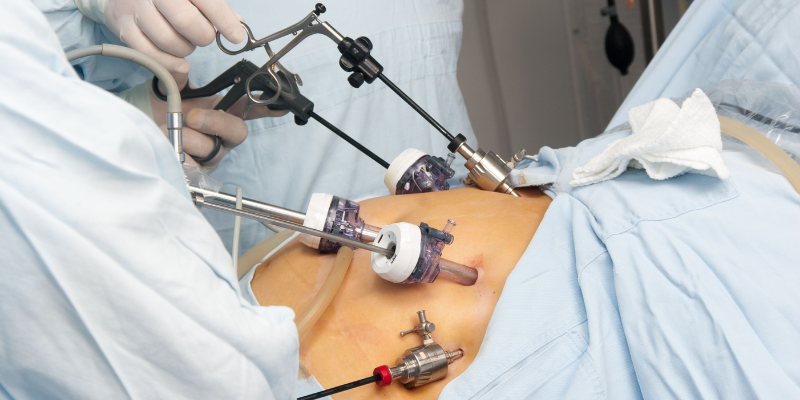Weight Loss Surgery Sleeve
Weight loss surgery sleeve is a form of surgery used to help people lose weight. You might be concerned about the safety of bariatric sleeve surgery. This is deciding once you’ve complete your pre-operative tests. For you, the most suited operation is chosen. Surgical techniques are available in a wide range of sizes and shapes. It’s never at the top of the to-do list. When diet, exercise, and pharmaceutical therapy have failed to offer satisfying results in obese persons, bariatric sleeve surgery may be utilized. As a result, do not be concerned about whether bariatric sleeve surgery is safe.
Before undergoing weight loss surgery sleeve, patients must have tried and failed all other treatment methods. Before surgery, the patient should be evaluated by all essential units to ensure that he or she is anesthesia-suitable. Is bariatric sleeve surgery a risky procedure? You can unwind. If the patient’s BMI is over 40, he or she can be operating on.
Weight Loss Surgery Sleeve: What Happens During Obesity Surgery?
A skilled surgical team uses the laparoscopic (closed) method to perform procedures. Patients are returned to their rooms once they have fully recovered from anesthesia. Our hospital’s General Surgery Specialist with experience in bariatric surgery and the appropriate specialists who are contacted based on the patient’s needs jointly choose the type of surgery to be performed. When making this selection, the patient’s history, habits, and any other diseases, if any, are all considered. For more information on the obesity surgery choices that are suitable for you, contact one of our surgeons.
Is weight loss surgery sleeve a risky procedure? We have the option of declining. Nutrition is an issue that must be addressing after bariatric sleeve surgery. In general, weight loss might last up to a year. We must adapt new eating habits and a new way of life after the procedure. We must not go back into our old habits. Likewise, we require consuming a more protein-dense diet. Exercise is necessary for long-term weight loss, in addition to a regular and balanced diet. Maintain open lines of communication with your dietician and doctor.
Weight Loss Surgery Sleeve: When Is It Possible To Get Pregnant?
One of the most prevalent gynecological ailments causing by obesity is polycystic ovary, in which the ovaries are coating in fat mass. In order to become pregnant and lose extra weight, women with this condition must lose weight. Many pregnant ladies are thinking about utilizing this app to lose weight. Pregnancy should be considering as soon as a year after weight loss surgery. This is the final stage of the slimming process, as well as the time required for newborn feeding. There should be no doubts about the safety of the baby.
Because the baby is breastfed for the first six months after birth, it is vital for the mother to consume a well-balanced diet and obtain enough calories, as the quality of breast milk is affected. It is not recommending for the first six months. After the first month, if additional foods are introducing, weight loss surgery sleeve can be performing. It is the volume of breast milk that the infant receives that is important. If the newborn is eating supplementary foods less and less breast milk in the eighth month, for example, it should not be utilizing until the bond with breast milk has reducing. If the mother’s milk is removing in the seventh month and enough nourishment and formula are providing, she can have a healthy baby.
What Is Revision Surgery, And When Does It Take Place?
Due to previous unsuccessful surgeries or inadvertent nutrition, some patients desire a weight loss surgery sleeve revision, or renewal. One of the most common reasons for revision is that the fundus region will remain larger, and the appetite hormone will be secreted more if the portion of the stomach that needs to be sliced is left a little smaller during the procedure. As a result, the organ will grow more swiftly. They don’t know the difference between solid and liquid foods in meals, and they stop consuming multi-calorie items, resulting in mindless eating after surgery. When alcoholics stop drinking, they gain weight quickly. Obesity therapies can lead to weight gain, albeit the rate is higher following excessive calorie consumption. A gastric balloon should not be inserting after bariatric surgery, since it may cause serious complications.
Prior to the procedure, the patient is thoroughly examining by neurologists, endocrinologists. If any part of the procedure is not suiting for surgery, it is cancel or postponing to a later date by treating the problem that prevents surgery.
Is Aesthetics Necessary After You’ve Attained Your Ideal Weight?
After enduring obesity therapy and metabolic application, people can simply return to themselves. As people lose weight, the conceptions of obesity and disease fade away, and they begin to focus more on the concept of beauty. After application, the slimming process begins fast, however there is a break and a decrease in the intermittent times. Obese and overweight persons place a lot of pressure on themselves to lose weight as quickly as feasible. The sense of beauty becomes increasingly significant as it begins to move away from being obese (overweight).
Abdominoplasty, breast aesthetics, face lifts, and gynecomastia treatments are all popular operations for those with sagging bodies. Is bariatric sleeve surgery a risky procedure? Obesity-related health disorders are, first and foremost, eliminated. While topics such as my blood pressure lowering and our blood sugar levels normalizing are covered in the first stage, exercise takes the main stage in the second stage. After the first month, exercise motions should be starting as soon as possible. Non-surgical aesthetics are valued highly by those who fall shorting in this area. People turn to surgery when the deformations (sagging) become too severe to endure. Laparoscopy, A sleeve gastrectomy treatment, removes 80-85 percent of the stomach. With time, the organ re-grows. As a result, folks must be able to discern between solid and liquid food when it comes to the eating program. Following surgery, it is critical to avoid drinking water during meals.
As a Weight Loss Surgery, Sleeve Effectiveness
Weight loss surgery sleeve procedure is a very effective weight loss tool when used in conjunction with weight loss surgery diet, exercise, and lifestyle changes. Studies have shown that gastric sleeve surgery for weight loss can help to significantly reduce your body weight and keep it off for years. Patients who had the procedure reported an average of 25-35% loss of excess body weight over 18 months time. This is a huge improvement compared to people who had not undergone surgery, as well as those who only adopted diet and exercise changes alone.

This makes it a great option for those looking for a safe, sustainable way to lose weight and keep it off over time. Furthermore, weight loss surgery sleeve procedure has been shown to improve Type 2 Diabetes symptoms and other medical conditions associated with obesity. It is no wonder why this popular weight loss surgery continues to be a top choice among those seeking an effective solution for their weight loss needs. It is important to discuss all options with your physician before attempting any form of bariatric weight loss surgery so you can make an informed decision that best suits your individual needs.





